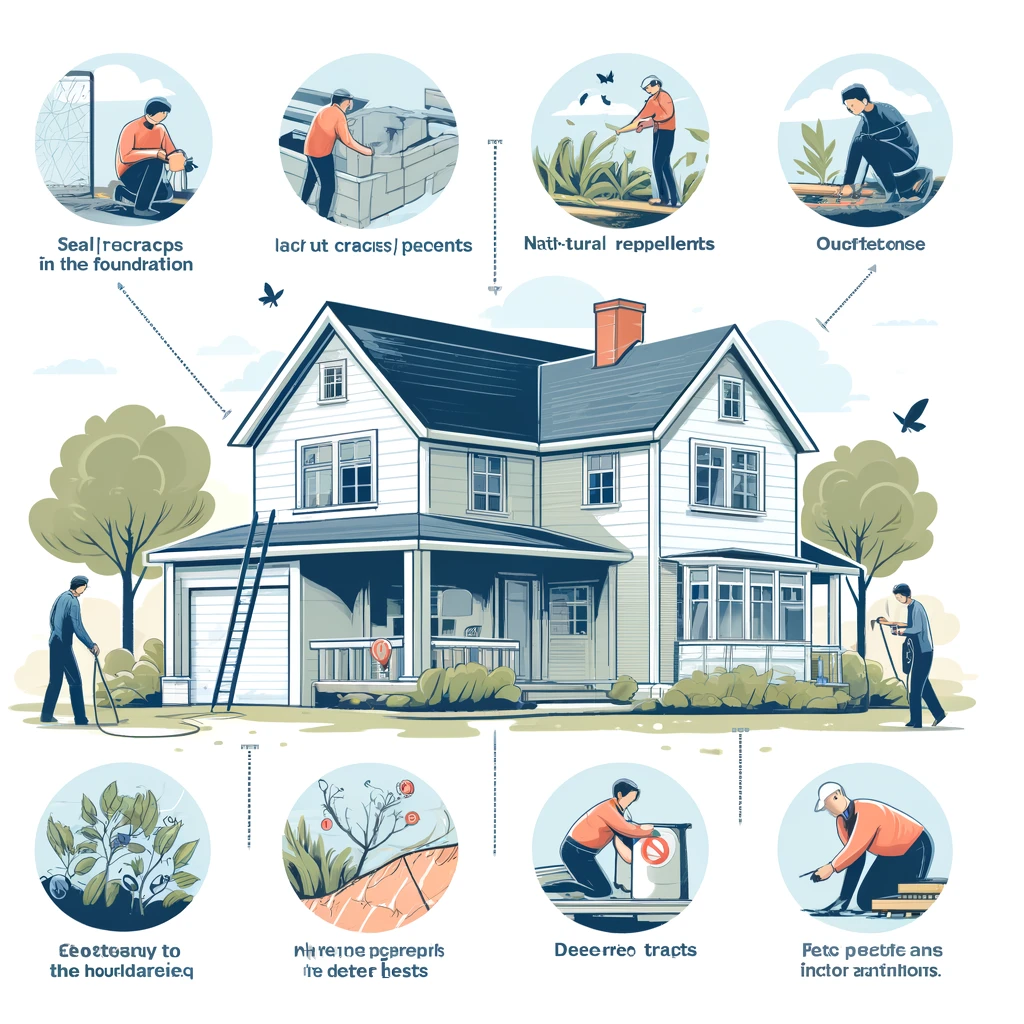Preventative Pest Control: Tips to Keep Bugs at Bay

Pest infestations can be more than just a nuisance; they can pose serious risks to your health and property. Implementing preventative pest control measures is key to keeping your home pest-free. Here are effective strategies to help you prevent unwelcome critters from making your home their own.
1. Seal Entry Points
- Overview: One of the most effective ways to prevent pests is by denying them access to your home.
- Action Steps: Inspect your home for any cracks, holes, or gaps in the foundation, walls, and around windows and doors. Use caulk, steel wool, or weatherstripping to seal these areas.
2. Manage Moisture
- Why It Matters: Many pests are attracted to moisture and can thrive in damp environments.
- Preventive Measures: Fix leaky pipes and faucets, ensure good drainage at the foundation, and use dehumidifiers in damp areas like basements and crawl spaces.
3. Keep It Clean
- Details: Regular cleaning can significantly reduce potential food sources for pests.
- Recommendations: Keep your kitchen counters, floors, and cabinets clean and free of crumbs. Store food in sealed containers, and regularly dispose of garbage in tightly covered bins.
4. Maintain Your Yard
- Importance: Your yard can be a major attractant for pests if not properly maintained.
- Yard Care Tips: Trim bushes and trees away from your home, manage weeds, and keep mulch at least 15 inches away from the foundation. Remove any yard debris where pests can breed or hide.
5. Use Appropriate Barriers and Repellents
- Options: For insects, consider window screens, door sweeps, and insect-repelling plants like citronella, marigolds, and lavender.
- Chemical Repellents: Use environmentally friendly pesticides around the perimeter of your home as a barrier. Always follow the manufacturer’s instructions for safe and effective use.
6. Regular Inspections
- Why Regular Checks: Regularly inspecting your home for signs of pests can catch problems before they become infestations.
- Professional Help: Consider an annual or bi-annual inspection by a professional pest control service, especially if you live in areas prone to specific pests.
Conclusion: Preventative pest control is all about taking proactive steps to protect your home. By implementing these strategies, you can create a less inviting environment for pests, significantly reducing the likelihood of infestations. Remember, the key to effective pest management is persistence and regular maintenance.
